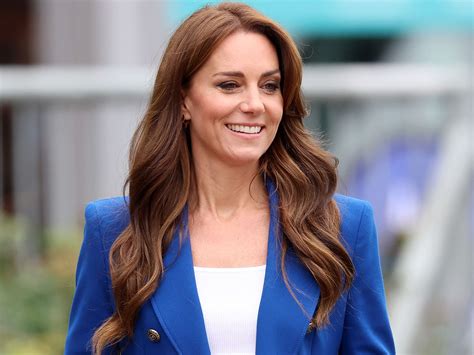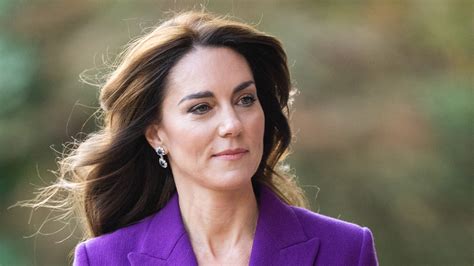
Former NCAA swimmer Riley Gaines is pregnant with her first child, due in December, she announced on social media. The announcement was accompanied by a veiled critique seemingly directed at gymnast Simone Biles regarding Biles’ comments on fairness in sports.
Riley Gaines, known for her vocal stance on transgender athletes in women’s sports, revealed on social media that she and her husband, Louis Barker, are expecting their first child. The announcement, made via posts on X (formerly Twitter) and Instagram, included maternity photos and a caption that has drawn attention due to its perceived subtle jab at Olympic gymnast Simone Biles.
Gaines shared a photo of herself and Barker holding a sonogram, with the caption: “Mama and Papa Bear. Baby Barker coming this December,” she wrote. “The best things in life are unplanned.”
The phrase “I’m not sure I could even be civil” in the caption is what sparked controversy, as it appeared to be a direct reference to Simone Biles’ recent remarks on the fairness of biological men competing in women’s sports. Biles had previously stated in an interview with Women’s Health Magazine, “I’m not gonna lie, I don’t know where I stand on that topic. I am very much for women’s health and women’s sports, but at the end of the day, I also want everyone to feel included.” She continued, “But I also know that in sports, to be fair, it might not be the way to go. And I feel like having that conversation is also a little bit hard. But I’m very much open to hearing things, and I also want to be educated on it. Because I don’t know everything. As much as people think I do, I don’t.” Further emphasizing the sensitivity of the topic, Biles added, “I wouldn’t want to say something that is discriminating or offensive because I’m not in that realm of the world. I just try to be educated. But I also think that everyone is entitled to their own opinion. And I feel like if I give my opinion, it cancels everything else out. So I’m just gonna keep training.”
Gaines’ comment, taken by many as sarcastic, underscored the ongoing debate surrounding transgender athletes’ participation in sports and ignited discussions across social media platforms. Many users interpreted Gaines’ words as a direct criticism of Biles’ non-committal stance.
This announcement follows Gaines’ high-profile activism. She has been a prominent advocate for maintaining separate sporting categories based on biological sex, particularly after tying with transgender swimmer Lia Thomas in an NCAA championship race in 2022. Since that event, Gaines has become a leading voice in the movement to restrict transgender women’s participation in women’s sports.
The news of Gaines’ pregnancy and the subtle social media commentary have added another layer to the complex and often contentious discussions surrounding sports, gender identity, and inclusivity.
Background and Context
Riley Gaines gained national recognition when she tied with Lia Thomas, a transgender woman, in the 200-yard freestyle at the NCAA Women’s Swimming Championship in 2022. This event thrust Gaines into the center of a national debate about transgender athletes’ participation in women’s sports. Gaines has since become a vocal advocate for policies that restrict transgender women from competing in women’s sports, arguing that it creates an unfair advantage for transgender athletes due to biological differences.
Her advocacy has included testifying before legislative bodies, appearing on numerous news outlets, and participating in rallies and protests. Gaines’ position is rooted in the belief that biological males have inherent physical advantages over biological females, even after hormone therapy. She argues that allowing transgender women to compete in women’s sports undermines the integrity of women’s competitions and deprives cisgender women of opportunities.
The debate surrounding transgender athletes in sports is complex, with passionate arguments on both sides. Advocates for transgender inclusion argue that excluding transgender athletes is discriminatory and that transgender women are women and should be treated as such. They point to studies that suggest hormone therapy can reduce or eliminate any potential competitive advantages. They also emphasize the importance of creating inclusive environments where transgender athletes can participate in sports without facing discrimination or prejudice.
On the other hand, those who advocate for maintaining separate categories based on biological sex argue that fairness and competitive integrity are paramount. They contend that biological differences between males and females give males an inherent advantage in many sports, even after hormone therapy. They argue that allowing transgender women to compete in women’s sports could lead to cisgender women being displaced from teams, scholarships, and competitive opportunities.
Simone Biles, widely regarded as one of the greatest gymnasts of all time, has previously expressed support for inclusivity in sports but has also acknowledged the complexities of the issue. Her cautious approach to the debate reflects the difficult balance between promoting inclusivity and ensuring fairness in sports. Her recent comments highlight the ongoing struggle to navigate these competing values and find solutions that are both equitable and inclusive.
Reactions and Implications
The announcement of Gaines’ pregnancy and the accompanying jab at Biles have elicited mixed reactions on social media. Some users have praised Gaines for her unwavering stance on transgender athletes in sports and have congratulated her on her pregnancy. Others have criticized her for seemingly targeting Biles, arguing that it is insensitive and divisive. Some have voiced concerns that Gaines is using her pregnancy announcement as an opportunity to further her political agenda.
The incident underscores the highly polarized nature of the debate surrounding transgender athletes in sports. It also highlights the challenges of having nuanced conversations about complex issues in the age of social media, where opinions are often expressed in simplistic and inflammatory ways.
The broader implications of this incident extend to the ongoing debate about the role of athletes in political and social issues. Athletes like Gaines and Biles have a significant platform to influence public opinion and shape policy. However, their involvement in these debates can also be controversial, particularly when their views are seen as divisive or insensitive.
The debate over transgender athletes in sports is likely to continue for the foreseeable future. As more transgender athletes come out and seek to participate in sports, it will be increasingly important to find solutions that are both fair and inclusive. This will require ongoing dialogue, education, and a willingness to consider different perspectives.
Expert Opinions
Experts in sports law, gender studies, and bioethics have weighed in on the debate surrounding transgender athletes in sports. Some legal scholars argue that policies that exclude transgender athletes are discriminatory and violate anti-discrimination laws. They point to court rulings that have upheld the rights of transgender individuals to participate in sports.
Gender studies experts emphasize the importance of understanding the social and cultural factors that shape our understanding of gender and sports. They argue that the debate over transgender athletes is often rooted in outdated and harmful stereotypes about gender and athleticism.
Bioethicists have explored the ethical considerations of allowing transgender athletes to compete in sports. They have argued that fairness should not be the only consideration and that inclusivity and respect for transgender individuals should also be taken into account.
These expert opinions highlight the complexity of the issue and the need for a nuanced and thoughtful approach.
Future Developments
The debate over transgender athletes in sports is likely to continue to evolve as more research is conducted and as societal attitudes towards gender identity continue to change. It is possible that new policies and regulations will be developed to address the issue, and that legal challenges will continue to be filed.
It is also possible that new technologies and scientific advancements will provide new ways to assess and mitigate any potential competitive advantages that transgender athletes may have. For example, research into hormone therapy and its effects on athletic performance could help to inform policy decisions.
Ultimately, the goal should be to create a sports environment that is both fair and inclusive for all athletes, regardless of their gender identity. This will require ongoing dialogue, education, and a willingness to consider different perspectives.
The Wider Landscape of Transgender Issues in Sports
Riley Gaines’ outspokenness comes at a time when policies surrounding transgender athletes in sports are being hotly debated and legislated across the United States and globally. Several states have enacted laws restricting or banning transgender athletes, particularly transgender women, from participating in women’s sports. These laws often cite concerns about fairness and the protection of competitive opportunities for cisgender women.
Conversely, some states and organizations have adopted more inclusive policies that allow transgender athletes to participate based on hormone levels or other criteria. These policies often aim to balance inclusivity with the need to maintain fair competition.
International sports organizations, such as the International Olympic Committee (IOC), have also grappled with the issue. The IOC has issued guidelines that allow transgender athletes to compete if they meet certain criteria, but these guidelines have been criticized by some for being too lenient or too restrictive.
The debate over transgender athletes in sports is part of a broader conversation about transgender rights and inclusion in society. Transgender individuals face discrimination and prejudice in many areas of life, including employment, housing, healthcare, and education. The fight for transgender rights is about ensuring that transgender individuals are treated with dignity and respect and have the same opportunities as everyone else.
Riley Gaines’ Continued Activism
Since her experience at the NCAA championships, Riley Gaines has dedicated herself to advocating for policies that protect women’s sports. She has testified before Congress, spoken at rallies, and appeared on numerous media outlets to share her views.
Gaines has argued that allowing transgender women to compete in women’s sports undermines the integrity of women’s competitions and deprives cisgender women of opportunities. She has called for the NCAA and other sports organizations to adopt policies that restrict transgender women from competing in women’s sports.
Gaines’ activism has been praised by some and criticized by others. Supporters admire her courage and her willingness to speak out on a controversial issue. Critics accuse her of being transphobic and of perpetuating harmful stereotypes about transgender people.
Despite the criticism, Gaines has remained steadfast in her advocacy. She has vowed to continue fighting for what she believes is right, even if it means facing backlash.
Impact of Social Media
Social media has played a significant role in shaping the debate over transgender athletes in sports. Platforms like Twitter, Facebook, and Instagram have become battlegrounds for competing viewpoints.
Supporters of transgender inclusion have used social media to share stories of transgender athletes and to advocate for inclusive policies. Opponents of transgender inclusion have used social media to express their concerns about fairness and to promote policies that restrict transgender athletes.
Social media has also been used to harass and intimidate transgender athletes and their supporters. This has created a toxic environment that makes it difficult to have productive conversations about complex issues.
The use of social media in the debate over transgender athletes highlights the challenges of navigating complex social issues in the digital age. It also underscores the importance of promoting civil discourse and combating online harassment.
Looking Ahead
The debate over transgender athletes in sports is likely to continue for the foreseeable future. As more transgender athletes come out and seek to participate in sports, it will be increasingly important to find solutions that are both fair and inclusive.
This will require ongoing dialogue, education, and a willingness to consider different perspectives. It will also require a commitment to creating a sports environment that is welcoming and respectful for all athletes, regardless of their gender identity.
The journey towards achieving this goal may be challenging, but it is a journey that is worth taking. By working together, we can create a sports world that is both fair and inclusive for all.
Frequently Asked Questions (FAQ)
Q1: What is Riley Gaines known for?
A1: Riley Gaines is a former NCAA swimmer who gained national recognition after tying with transgender swimmer Lia Thomas in a 200-yard freestyle race. She has since become a vocal advocate for policies restricting transgender women’s participation in women’s sports.
Q2: What was the controversy surrounding Riley Gaines’ pregnancy announcement?
A2: The controversy stemmed from a caption accompanying her pregnancy announcement on social media, which appeared to be a subtle jab at Simone Biles regarding Biles’ comments on fairness in sports and inclusivity. The phrase “I’m not sure I could even be civil” was interpreted by many as a sarcastic response to Biles’ nuanced stance.
Q3: What is Simone Biles’ stance on transgender athletes in sports?
A3: Simone Biles has expressed support for inclusivity in sports but has also acknowledged the complexities of the issue. She has stated that she wants everyone to feel included but also recognizes the importance of fairness, adding that she is open to being educated on the matter and prefers to be cautious in her statements.
Q4: Why is there a debate about transgender athletes in sports?
A4: The debate centers around the balance between inclusivity and fairness. Advocates for transgender inclusion argue that excluding transgender athletes is discriminatory, while those advocating for separate categories based on biological sex argue that biological differences give transgender women an unfair advantage in women’s sports.
Q5: What are some of the arguments for and against transgender women competing in women’s sports?
A5: Arguments for inclusion: transgender women are women and should be treated as such; hormone therapy can reduce or eliminate any potential competitive advantages; creating inclusive environments is important. Arguments against: biological males have inherent physical advantages; allowing transgender women to compete could lead to cisgender women being displaced from teams and opportunities; fairness and competitive integrity are paramount.
Expanded Analysis and Further Context
The intersection of sports, gender identity, and societal perceptions is a complex and often contentious arena. Riley Gaines’ recent announcement, layered with what many perceived as a pointed remark towards Simone Biles, exemplifies the tensions that simmer beneath the surface of this debate. To fully grasp the significance of this event, it’s essential to delve deeper into the key issues and their broader context.
The Science of Sex and Athletic Performance
At the heart of the debate lies the question of biological differences between males and females and their impact on athletic performance. On average, males tend to have greater muscle mass, bone density, and cardiovascular capacity than females. These physiological differences often translate into performance advantages in many sports. For instance, males typically run faster, jump higher, and possess greater upper body strength.
The impact of hormone therapy on these biological differences is a subject of ongoing scientific research. While hormone therapy can reduce muscle mass and testosterone levels in transgender women, some studies suggest that certain advantages, such as bone density and lung capacity, may persist even after prolonged hormone therapy. The extent to which these residual advantages affect athletic performance remains a topic of debate.
It’s crucial to recognize that biological sex is not a binary construct. Intersex individuals, who are born with variations in sex characteristics, further complicate the picture. Their experiences highlight the limitations of relying solely on biological sex to determine eligibility for sports participation.
The Social and Cultural Dimensions of Gender
Beyond the biological considerations, the debate over transgender athletes also involves social and cultural dimensions of gender. Gender identity is a person’s internal sense of being male, female, or another gender. It is distinct from biological sex assigned at birth.
Transgender individuals often face significant challenges in navigating a society that is structured around binary gender norms. They may experience discrimination, prejudice, and violence.
Including transgender athletes in sports is seen by many as a matter of basic human rights and social justice. Advocates argue that transgender individuals should have the same opportunities as everyone else to participate in activities that promote health, well-being, and social inclusion.
The Role of Sports Organizations
Sports organizations, such as the NCAA, the IOC, and national governing bodies, play a crucial role in setting policies and regulations regarding transgender athletes’ participation. These organizations must grapple with competing values, including fairness, inclusivity, safety, and privacy.
Finding a balance that satisfies all stakeholders is a difficult task. Some organizations have adopted policies that require transgender women to undergo hormone therapy for a specified period before being eligible to compete in women’s sports. Others have implemented case-by-case evaluations.
The policies of sports organizations are constantly evolving as new research emerges and as societal attitudes towards gender identity change.
The Impact on Cisgender Women
One of the main concerns raised by opponents of transgender inclusion in women’s sports is the potential impact on cisgender women. They argue that allowing transgender women to compete could lead to cisgender women being displaced from teams, scholarships, and competitive opportunities.
There is limited empirical evidence to support this claim. However, the perception that transgender women pose a threat to cisgender women’s opportunities is a powerful one that fuels much of the opposition to transgender inclusion.
It’s important to recognize that cisgender women already face significant challenges in sports, including gender inequality, sexual harassment, and underrepresentation in leadership positions. Addressing these issues should be a priority, regardless of the debate over transgender athletes.
The Need for Nuanced Conversations
The debate over transgender athletes in sports is often framed as a zero-sum game, with one side winning and the other losing. However, this is a false dichotomy. It is possible to find solutions that are both fair and inclusive.
To do so, we need to move beyond simplistic soundbites and engage in nuanced conversations that take into account the complexities of the issue. We need to listen to different perspectives, respect each other’s viewpoints, and be willing to compromise.
Ultimately, the goal should be to create a sports environment that is welcoming and respectful for all athletes, regardless of their gender identity.
The Legal Landscape
The legal landscape surrounding transgender rights is constantly evolving. Numerous court cases have challenged policies that discriminate against transgender individuals, including in the context of sports.
Some courts have ruled in favor of transgender athletes, finding that policies that exclude them violate anti-discrimination laws. Other courts have upheld policies that restrict transgender athletes’ participation, citing concerns about fairness and competitive integrity.
The legal outcomes often depend on the specific facts of the case, the jurisdiction, and the applicable laws.
The Future of the Debate
The debate over transgender athletes in sports is likely to continue for the foreseeable future. As more transgender athletes come out and seek to participate in sports, it will be increasingly important to find solutions that are both fair and inclusive. This may involve developing new policies and regulations, conducting more research, and promoting greater understanding and empathy. The conversation sparked by Riley Gaines’ announcement emphasizes the ongoing sensitivity and importance of these discussions.









